If you are one of those students who got into a Canadian institution but could not study in Canada because of the COVID-19 pandemic? The Department of Immigration, Refugees, and Citizenship Canada (IRCC) has some good news for you. You can now submit a Canadian permanent residence application even if you completed your degree programme via distance education in the last two years.
Canada Express Entry
It is an electronic system that helps manage the Canadian permanent residence application submitted by skilled workers. A candidate’s submitted online profile goes through an evaluation process by the federal government for Express Entry managed programmes.

Not all candidates get accepted into the Canada Express Entry pool. The eligible candidates are ranked based on the Comprehensive Ranking System (CRS) score.
The CRS score depends on age, work experience, education, language skills, etc. The Canadian government picks candidates from the top of the Canada Express Entry pool every two weeks based on their CRS scores. The candidates then receive a Canadian permanent residence invitation.
Here’s a list of methods of study that makes you eligible for CRS scores,
- Distance learning through online mode
- Distance learning from outside Canada
- Distance learning through part-time studies
How Does Canada Express Entry Work?
There are two major stages in Express Entry. In the first stage, the eligible candidates express interest in obtaining permanent residence in Canada. In the second stage, the Canadian government evaluates the applicants and invites the eligible candidates to immigrate.

Here’s how you can submit your profile for Canada Express Entry,
- Check if you are eligible for Canada Express Entry. You will have to visit this page, enter information relevant to the process, and see if you’re eligible.
- Take your language tests and get an Educational Credential Assessment (ECA). You can take language tests for English and/or French. The test scores have a validity of two years. The tests are listed below,
- CELPIP General Test (English)
- IELTS General Training (English)
- TEF Canada: Test d’évaluation de français (French)
- TCF Canada: Test de connaissance du français (French)
- Visit the IRCC website and submit your profile expressing interest in permanent residence in Canada.
- Wait till the IRCC sends you an Invitation to Apply (ITA) for permanent residence in Canada.
- Once you’ve received your ITA, you can submit your Application for Permanent Residence (APR). You will have to take a medical exam and obtain police certificates as part of this process. Once you apply, the IRCC will provide you with an Acknowledgement of Receipt (AOR).
- Once the IRCC processes your APR, they will invite you to submit your biometrics.
- You will have to wait up to six months for the IRCC’s final decision regarding your APR. Once the IRCC approves your IRCC, you will receive a permanent resident visa and a Confirmation of Permanent Residence in Canada(COPR). These documents will allow you to travel to Canada and complete the process.
You can always re-submit the same if you are eligible and do not get your ITA within one year of submitting your Express Entry profile.
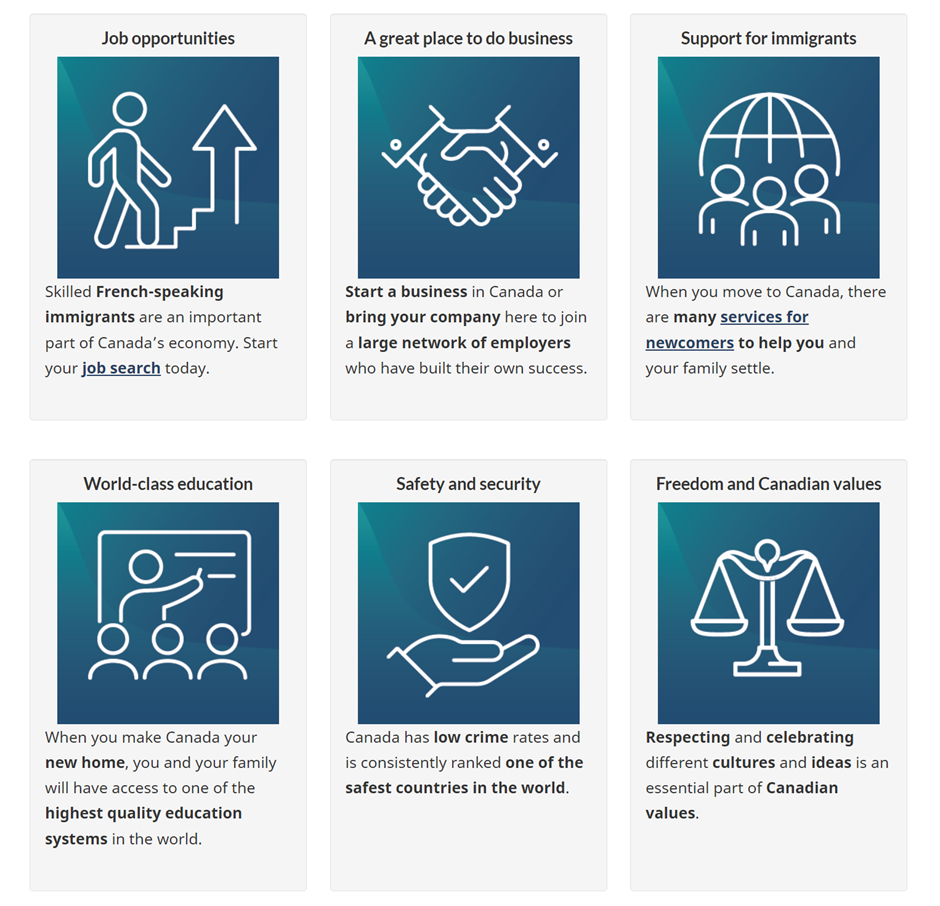
Pros And Cons of The Canada Express Entry System
Since 2015, Canada’s Express Entry system has improved how skilled worker applications for permanent residence are processed. Besides time, it has also improved the experience for applicants.
With the previous first-come, first-served method, the number of applicants was far higher than the number of spots available for skilled worker immigration each year. This hindered permanent residence visa approvals, and applicants had to wait several years for the IRCC to process their applications.
With the Canada Express Entry system, the IRCC can process a request for permanent residence in Canada in under 6 months. With the previous method, it would take almost 6 years.
The Comprehensive Ranking System is a research-backed system developed by the Canadian government to pick applicants with characters that will enable them to succeed in Canada.
With Express Entry, you have not assured a permanent residence visa since there is no certainty that your profile will be approved and you will receive an ITA. Under Express Entry, applicants with the highest CRS scores have a higher probability of obtaining permanent residence in Canada.
You will get multiple opportunities to receive a permanent residence visa since Express Entry draws occur often. The draws happen almost once every two weeks.
If you’re denied permanent residence in Canada once, you can always increase your CRS score by obtaining a job offer in Canada, more professional work experience, or improving your language test scores. This allows you to try at least once every year.
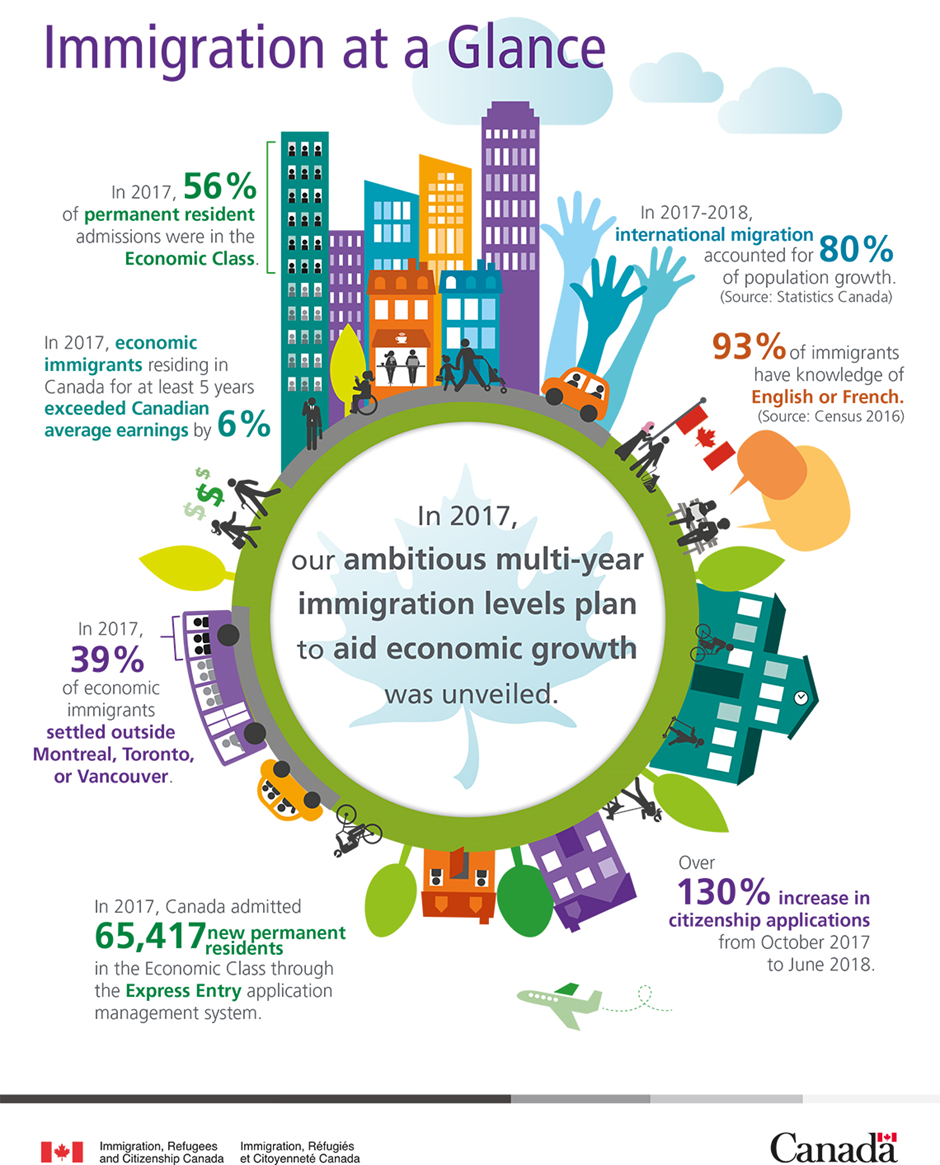
CRS Scores
The Comprehensive Ranking System (CRS) is a point-based system that assigns points (CRS scores) to applicants after considering various factors. The CRS score depends on the following components,
- Human capital factors
- Accompanying spouse
- Skill transferability
- Provincial nomination
- Job offers
- Canadian study experience
- French language ability
- A sibling living in Canada
The highest possible CRS score is 1200. The scores for applicants without an accompanying common-law partner or spouse are listed below.
- 500 points for human capital factors
- 100 points for skill transferability
- 600 points for provincial nomination or up to 200 points for a qualifying job offer
- Up to 30 points for Canadian study experience
- Up to 50 points for French language skills in addition to the English language
- Up to 15 additional points if you have a sibling living in Canada
The CRS scores differ drastically if you have an accompanying common-law partner or spouse. The score components are listed below.
- Up to 460 points instead of 500 for human capital factors
- Up to 40 points for the human capital factors of the spouse or partner
- Up to 600 points for a provincial nomination, just like the others
- A qualifying job offer gets you up to 200 points
- The Canadian study experience, and language skills scores are 30 and 50, respectively.
- For the sibling living in Canada, the IRCC considers one sibling of the applicant and the spouse/partner. You’ll get a maximum of 15 points for this component.
You can always use the Comprehensive Ranking System tool to calculate your CRS score as a skilled immigrant under Canada Express Entry. All you have to do is fill in a form, and the tool will provide you with the exact CRS score based on skills, education, language skills, work experience, etc.
Eligibility To Apply for Canada Express Entry as A Skilled Worker
The programme allows skilled workers with work experience in foreign nations to permanently immigrate to Canada. You will have to meet all minimum requirements to be eligible, though. There are minimum requirements for skilled work experience, language ability, and education.
The eligibility for the Federal Skilled Worker Programme is different from the CRS score. While the latter is a 1200-point score, the former is a 100-point. The pass mark on the date of writing this article was 67 marks. The marks depend on 6 factors, namely,
- Age
- Work experience
- Qualifying job offers
- Education
- French and/or English language skills
- Adaptability
The Minimum Requirements
Work Experience
As a skilled worker, you must possess work experience in the following jobs under the National Occupational Classification (NOC).
- Managerial (skill type 0)
- Professional (skill level A)
- Technical and skilled (skill level B)
You will also have to ensure that you perform the duties explained in the occupational description in the NOC. In addition, the experience must be,
- In the same kind of job as the job you are using for your immigration
- Within the last decade
- Paid and not volunteer or unpaid internships
- At least continuous work for 1 year or 1560 hours. You can accumulate these hours in a single full-time job or multiple part-time jobs over a year.
Language Skills
You will have to take the approved language tests in French or English. The test should have all the following components.
- Writing
- Listening
- Speaking
- Reading
A minimum Canadian Language Benchmarks (CLB) score of 7 is the minimum eligibility in all 4 skills. The language test scores are eligible for 2 years, and you must apply for permanent residence within that timeframe. If 2 years elapse before you apply, you will have to take the test once again.
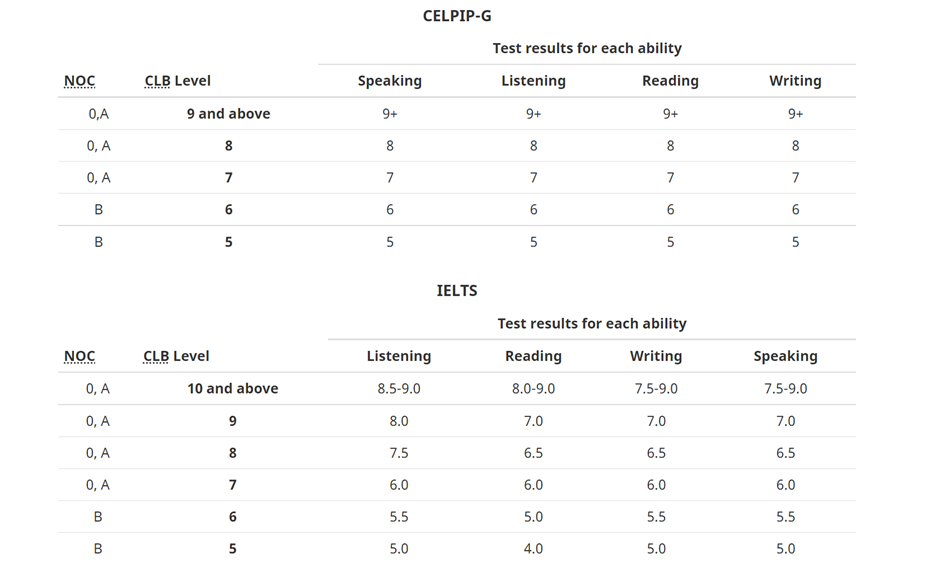
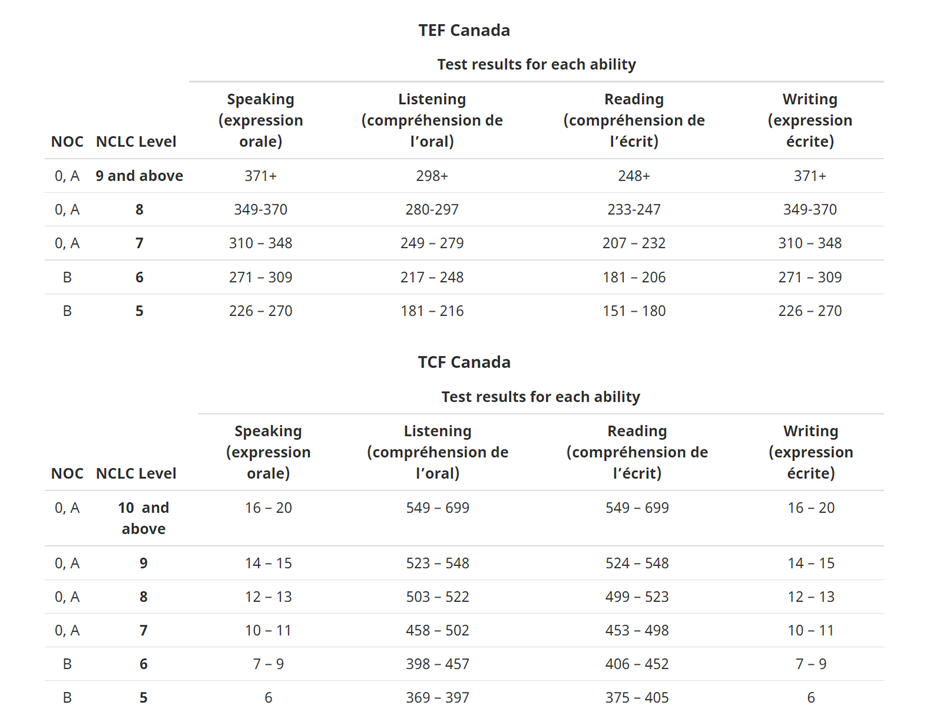
Education:
You can either use the certificate, diploma, or degree obtained from a Canadian school, such as a secondary or post-secondary institution. If you have received foreign education, you must produce the following when called upon.
- Proof of completion
- An Education Credential Assessment (ECA) from a designated organisation. It shows that your education qualification equals a certificate of completion, diploma, or degree from a Canadian secondary or post-secondary institution.
Proof Of Funds
You will have to produce proof of funds showing that you have enough money to settle in Canada for you and your family. The amount of money is calculated based on the size of your family. You must include,
- Yourself
- Your spouse/partner
- Dependent children
- Your spouse/partner’s dependent children
Here’s a table showing the minimum amount you will need to immigrate to Canada as of June 9, 2022.
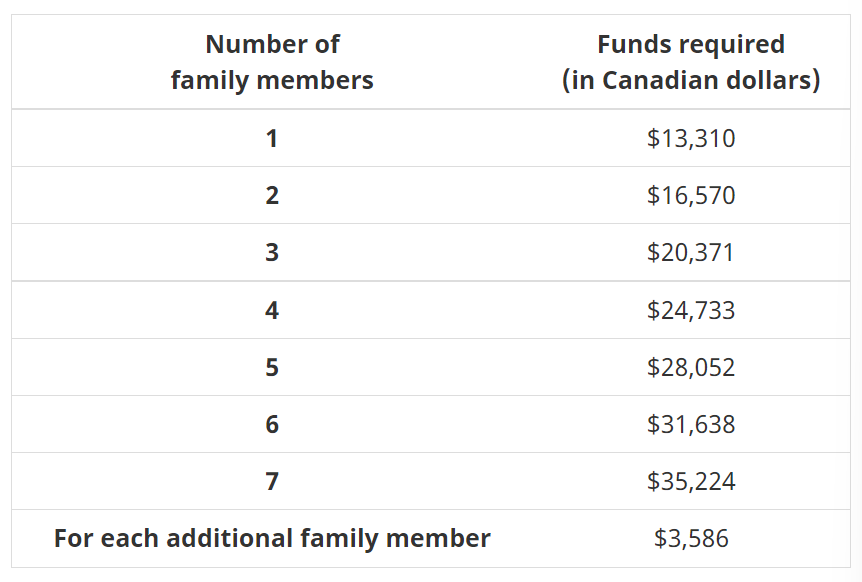
The funds must be liquid. You cannot use the equity on a property as proof of funds. You cannot borrow money too. If you have money in a joint account with your partner/spouse, it will be counted only against their name. But you will have to produce proof that you have access to that money.
You do not have to submit proof of funds if,
- You are currently allowed to work in Canada legally
- You have a qualifying job offer from a Canadian employer
Are you a student who wishes to study in Canada and immigrate to the country? Are you unsure about the university you’ve picked? Services like SelectRight can help you pick the most suitable university based on your preferences.
All you have to do is open the portal, answer a few questions about yourself and start getting recommendations. You can also connect with alumni and obtain guidance from experts. Studying abroad has never been easier.
Frequently Asked Questions
1. Can I use the CRS score calculator even if I haven’t filled out my Express Entry profile?
Yes, you can use the CRS score calculator to check your CRS score before filling your Canada Express Entry profile.
2. Is the language test compulsory?
Yes, anyone applying for permanent residence in Canada through the federal Express Entry system must take the language test.
3. What is the Canadian Language Benchmark (CLB)?
The Canadian government uses a standardized approach to evaluate your language skill.
4. Do I need a job offer in Canada under Express Entry?
No, you do not need a Canadian job offer to get your Express Entry approved. A job offer will not assure that you will succeed, but it may help improve your scores.


















